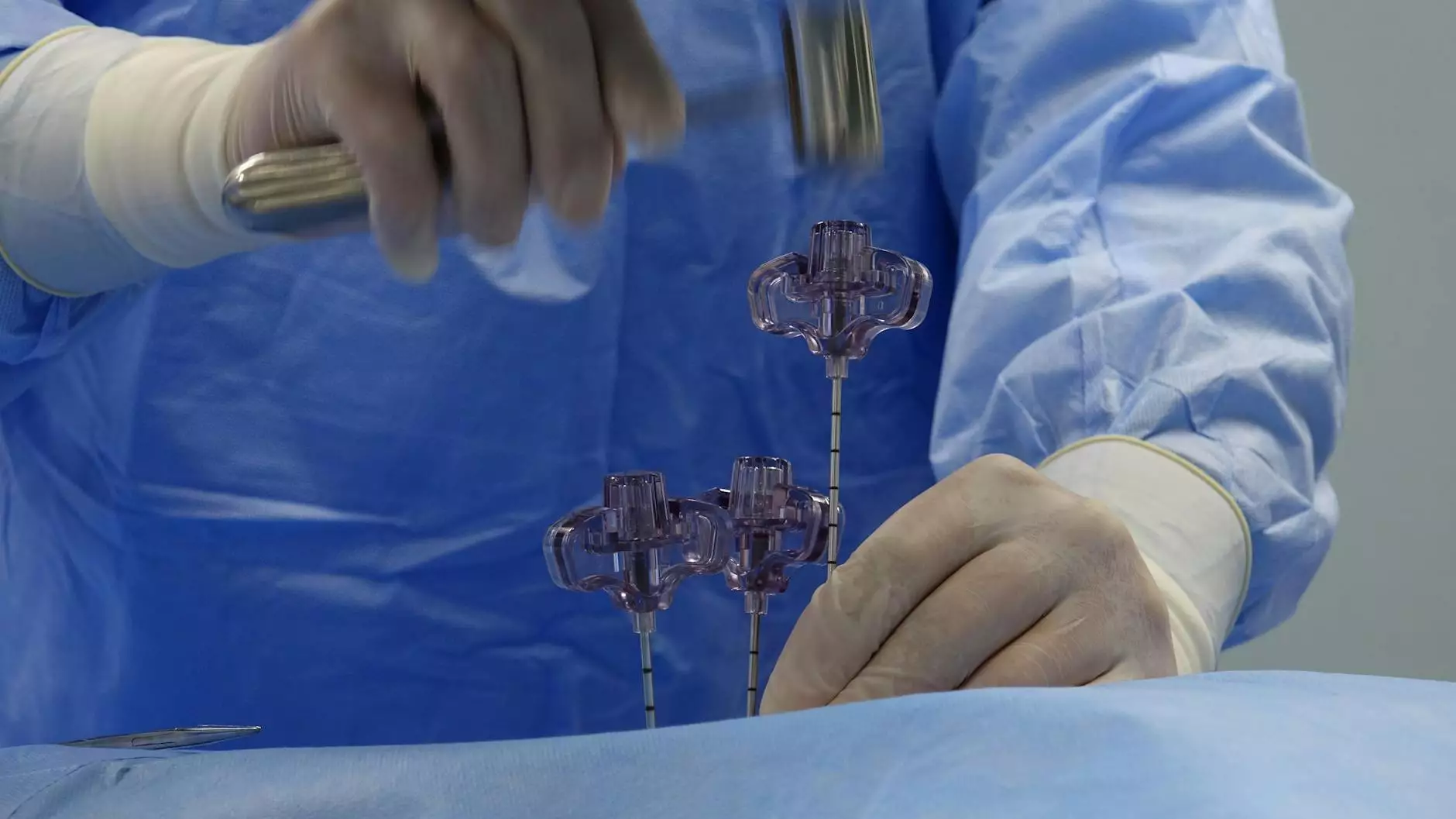Understanding Gastric Bypass Surgery: A Comprehensive Guide

Gastric bypass surgery is a surgical weight-loss procedure that has assisted countless individuals in achieving and maintaining a healthy weight. It is essential to understand the intricacies of this procedure, its potential benefits, the risks involved, and the necessary lifestyle changes following the operation. This guide will provide detailed insights into gastric bypass surgery aimed at enhancing your knowledge and supporting you in making informed decisions about your health.
What is Gastric Bypass Surgery?
Gastric bypass surgery, also known as Roux-en-Y gastric bypass, involves creating a small pouch from the stomach and connecting it directly to the small intestine. This procedure is a type of bariatric surgery and is primarily performed to treat obesity when other weight-loss methods, such as diet and exercise, have failed.
How Does Gastric Bypass Work?
The main goal of gastric bypass surgery is to limit food intake and reduce calorie absorption. The surgery follows several key steps:
- Creation of a Small Stomach Pouch: The surgeon divides the stomach into two parts, creating a small upper pouch that restricts food intake.
- Bypassing the Small Intestine: The surgeon then connects the small pouch directly to the small intestine, bypassing a significant portion of the stomach and the upper part of the small intestine.
- Reduced Absorption: Because the food bypasses most of the stomach and small intestine, fewer calories and nutrients are absorbed, thereby facilitating weight loss.
Who is a Good Candidate for Gastric Bypass Surgery?
Gastric bypass surgery is generally recommended for individuals who meet specific criteria:
- Body Mass Index (BMI): Candidates usually have a BMI of 40 or higher, or a BMI of 35 or higher with obesity-related health conditions like diabetes or hypertension.
- Failed Attempts at Weight Loss: Individuals who have tried multiple weight-loss strategies without success are considered for this surgery.
- Commitment to Lifestyle Changes: Successful outcomes require a strong commitment to long-term dietary changes, exercise, and a healthy lifestyle.
Benefits of Gastric Bypass Surgery
The benefits of undergoing gastric bypass surgery extend beyond weight loss. Some of the advantages include:
- Significant Weight Loss: Patients often lose a substantial amount of weight, improving their overall health.
- Improvement of Obesity-Related Conditions: Conditions such as type 2 diabetes, sleep apnea, and hypertension may improve or resolve post-surgery.
- Enhanced Quality of Life: Many patients report increased energy levels, improved mobility, and a better quality of life post-surgery.
- Long-Term Success: Studies have shown that gastric bypass surgery leads to sustained weight loss for many patients over the long term.
Risks and Considerations of Gastric Bypass Surgery
While gastric bypass surgery can provide significant benefits, it is also associated with potential risks and complications:
- Infection: As with any surgery, there is a risk of infection at the incision site.
- Blood Clots: Patients are at risk for developing blood clots after surgery, which may lead to serious complications.
- Nutritional Deficiencies: The surgery alters the digestive system, which may lead to deficiencies in essential vitamins and minerals.
- Dumping Syndrome: Rapid gastric emptying may result in symptoms such as nausea, vomiting, and diarrhea after eating certain foods.
The Gastric Bypass Surgery Procedure
Pre-Surgery Preparation
Prior to the surgery, patients undergo several evaluations and assessments, including:
- Medical history review and physical examination
- Consultations with a dietitian and psychologist
- Health assessments to evaluate risks and potential benefits
The Surgical Process
The gastric bypass surgery typically takes about 2 to 4 hours and involves the following steps:
- Anesthesia: Patients are placed under general anesthesia to ensure they are unconscious and pain-free during the procedure.
- Creating the Pouch: The surgeon creates a small pouch at the top of the stomach.
- Connecting to the Small Intestine: A part of the small intestine is bypassed, creating a new pathway for food.
- Closing the Incision: The surgeon closes the incisions, usually with sutures or staples.
Recovery After Gastric Bypass Surgery
Recovering from gastric bypass surgery requires time and adjustments. Recovery generally entails:
- Hospital Stay: Most patients stay in the hospital for 2 to 4 days following surgery.
- Pain Management: Medications will be prescribed to manage pain during recovery.
- Dietary Changes: Patients will follow a specific diet plan that progresses from liquids to solids as they heal.
- Follow-Up Appointments: Regular consultations with healthcare providers are crucial to monitor progress and address any concerns.
Lifestyle Changes Post-Surgery
Post-surgery, patients must commit to significant lifestyle changes to ensure long-term success. These include:
- Healthy Eating: Adopting a balanced diet rich in nutrients is essential while avoiding high-calorie, sugary, or fatty foods.
- Regular Exercise: Incorporating physical activity into daily routines boosts overall health and aids weight loss.
- Monitoring Weight and Health: Keeping track of weight and regular health check-ups help maintain progress.
- Support Groups: Engaging with support groups can provide encouragement and accountability post-surgery.
Conclusion: Embracing Change Through Gastric Bypass Surgery
Gastric bypass surgery represents a transformative opportunity for individuals struggling with obesity. While the journey may be challenging, the rewards of improved health and enhanced quality of life are well worth the effort. By understanding the procedure, recognizing the dedication required, and making necessary lifestyle changes, patients can achieve lasting success in their weight-loss journey. Support from healthcare professionals and loved ones plays a crucial role in this transition, ensuring that individuals not only lose weight but also gain a healthier, more fulfilling life. If you are considering this surgical option, consult a qualified healthcare provider to explore the best pathways tailored to your unique needs.









